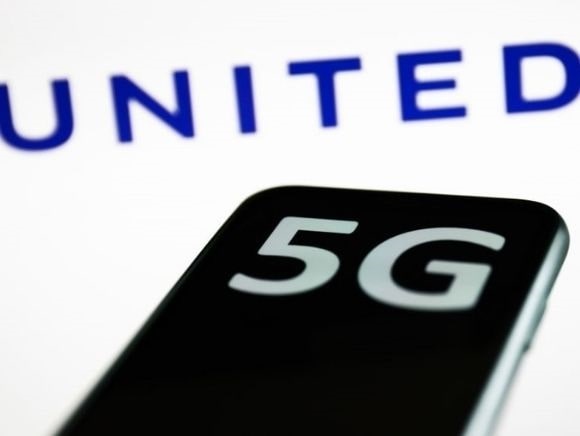The rollout of the C-Band 5G (Fifth Generation) mobile network could leave thousands of would-be passengers stranded overseas and disrupt the airfreight system. The system was set to go live across the country today, Wednesday, Jan. 19, but the Federal Aviation Administration (FAA) is worried about “catastrophic” issues, warning that the signal could interfere with sensitive instruments on wide-bodied aircraft. The concerns focus on how the nationwide 5G network towers close to airports could impact altimeters – the device that measures how high the planes are flying. Many international operators have already canceled flights due to safety concerns.
A Last-Minute Fix?
As the deadline for the system going live approached, a deal was reached between airlines and 5G providers AT&T and Verizon to hold back a complete switch on for now. The White House was involved in brokering the deal, and shortly after announcing the temporary limitation, President Biden said, “This agreement protects flight safety and allows aviation operations to continue without significant disruption and will bring more high-speed internet options to millions of Americans.”
AT&T released a brusk response to the deal:
“At our sole discretion we have voluntarily agreed to temporarily defer turning on a limited number of towers around certain airport runways as we continue to work with the aviation industry and the FAA to provide further information about our 5G deployment, since they have not utilized the two years they’ve had to responsibly plan for this deployment.”
Ramifications for Airlines
While there is potentially much to be gained in the big picture of 5G technology, there seem to be some real and current problems with its implementation, at least for airlines and those affected down the line. Thousands of canceled flights means stranded passengers – many overseas – and undelivered cargo. And it certainly wouldn’t be good for airlines financially, which would likely have a long-term chilling effect on the industry.
The chief executives of American Airlines (AAL.O), Delta Air Lines (DAL.N), United Airlines, Southwest Airlines (LUV.N), and others penned a missive that made it into the hands of White House National Economic Council director Brian Deese, Transportation Secretary Pete Buttigieg, FAA Administrator Steve Dickson, and Federal Communications Commission (FCC) Chairwoman Jessica Rosenworcel. “Unless our major hubs are cleared to fly, the vast majority of the traveling and shipping public will essentially be grounded,” they wrote.
The airline executives warned of the potential for a “catastrophic” aviation crisis once the network is activated and stated: “Immediate intervention is needed to avoid significant operational disruption to air passengers, shippers, supply chain and delivery of needed medical supplies.”
“Multiple modern safety systems on aircraft will be deemed unusable causing a much larger problem than what we knew,” the letter warned. “Airplane manufacturers have informed us that there are huge swaths of the operating fleet that may need to be indefinitely grounded.”
Why Do We Need 5G Technology Anyway?

(Photo by Jakub Porzycki/NurPhoto via Getty Images)
Perhaps the most apparent reason for incorporating the 5G network is to improve internet speeds, as it is approximately 100 times faster than the previously generated 4G network – but there is potential for so much more. According to Government Technology, “5G will be one of the driving forces behind the Fourth Industrial Revolution—the blurring of the lines between physical, digital and biological spaces.”
With its high bandwidth and low latency, the new tech could allow aerial intelligence companies to sharpen their monitoring of assets in near real-time and aid in predicting needed repairs and improving the overall efficiency of operations. It has the potential to recognize hazardous areas and might even support carbon footprint management.
A Hesitant Response
AT&T and Verizon, the primary owners of the network, do not seem overly concerned with the airlines’ pleas. They argue that 5G has already been deployed in 40 other countries without affecting planes. Still, the cellular company giants have agreed to create buffer zones for six months around 50 U.S. airports to minimize interference from their towers.
With these concerns and fears possibly coming to fruition today, airlines are working hard to prevent any potential danger or inconvenience for their companies, employees, and travelers. Grounded airplanes, halted cargo planes carrying much-needed merchandise, and stranded travelers are just the beginning of the troubles U.S.-based airlines will face if the 5G interference has the interference they predict.
~ Read more from Kirsten Brooker.




